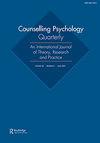The Burden of Keeping Things to Yourself: Self-Concealment and Suicidality
IF 1.5
Q3 PSYCHOLOGY, APPLIED
引用次数: 0
Abstract
ABSTRACT Suicide is a critical concern for psychologists given the complexity of suicide risk and fatal consequences. Using self-determination theory (SDT) as a framework, we examined the relationships between self-concealment, basic psychological needs, collectivism, and suicidality in a sample of adults in the United States (n = 199). Self-concealment is an interpersonal pattern of hiding sensitive personal information from others and has been correlated with increased suicidality. We tested a model whereby unmet basic psychological needs (i.e. autonomy, competence, and relatedness) mediated the relationship between self-concealment and suicidality. We also included collectivist cultural orientation as a moderator. We found that greater self-concealment was associated with more dissatisfaction with all three basic needs. However, only dissatisfaction with the relatedness need was associated with more suicidality. The effect of relatedness need dissatisfaction on suicidality was moderated by collectivism such that the effect was stronger for participants who were higher in collectivism. We found support for SDT as a framework for theory driven exploration of self-concealment and suicidality. The significant moderating effect of collectivism also highlights the importance of including cultural variables in future research. We include a discussion of implications for research, intervention, and prevention.把事情留给自己的负担:自我隐藏和自杀
本文章由计算机程序翻译,如有差异,请以英文原文为准。
求助全文
约1分钟内获得全文
求助全文
来源期刊

Counselling Psychology Quarterly
PSYCHOLOGY, APPLIED-
CiteScore
6.20
自引率
6.70%
发文量
30
期刊介绍:
Counselling Psychology Quarterly is an international interdisciplinary journal, reporting on practice, research and theory. The journal is particularly keen to encourage and publish papers which will be of immediate practical relevance to counselling, clinical, occupational, health and medical psychologists throughout the world. Original, independently refereed contributions will be included on practice, research and theory - and especially articles which integrate these three areas - from whatever methodological or theoretical standpoint. The journal will also include international peer review commentaries on major issues.
 求助内容:
求助内容: 应助结果提醒方式:
应助结果提醒方式:


